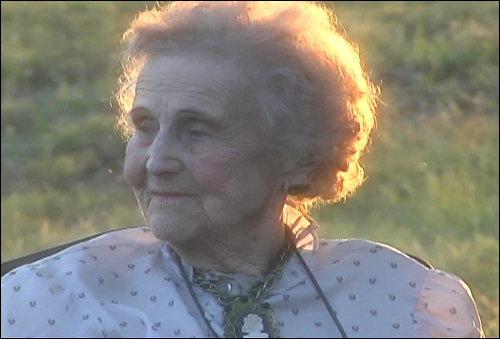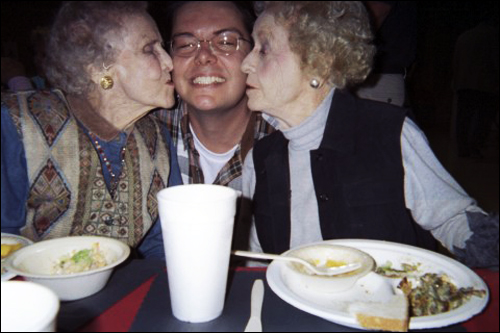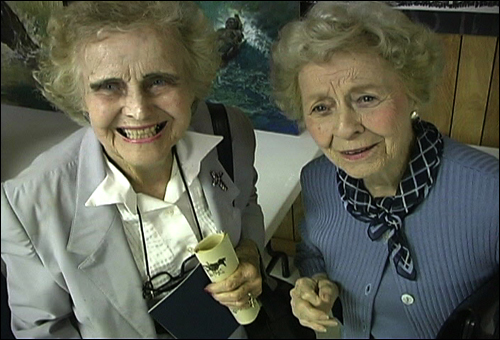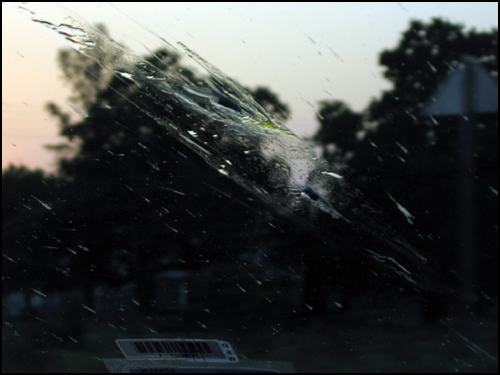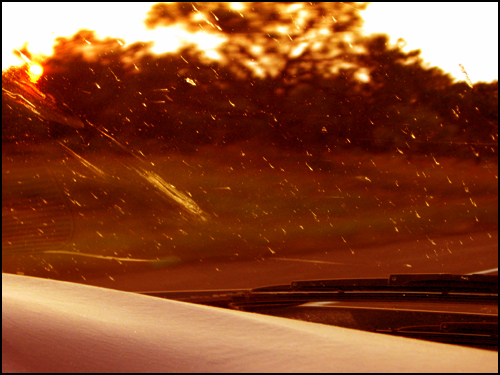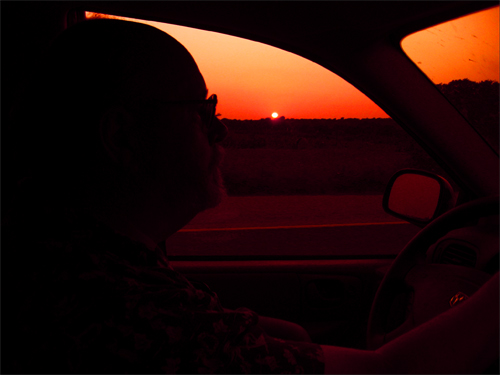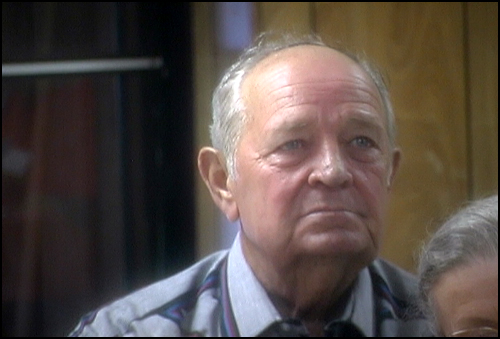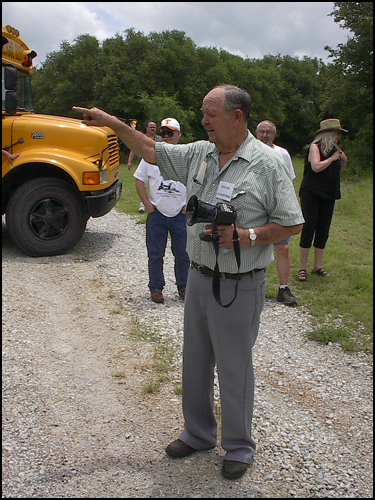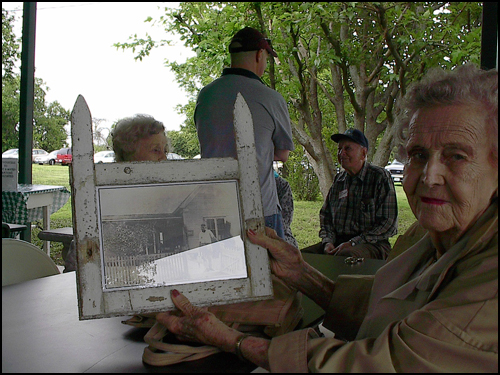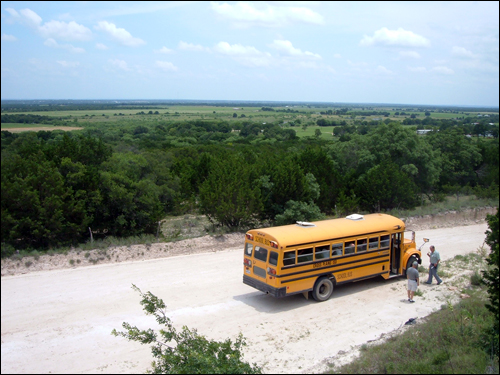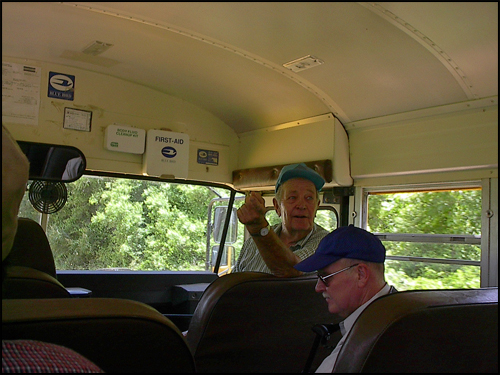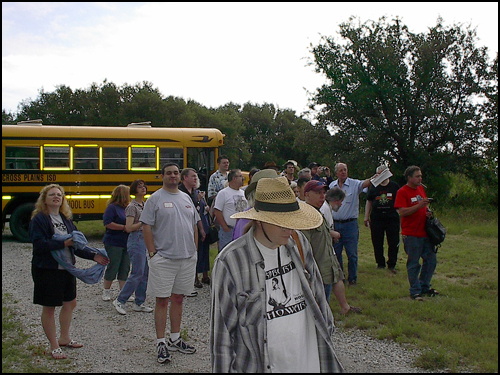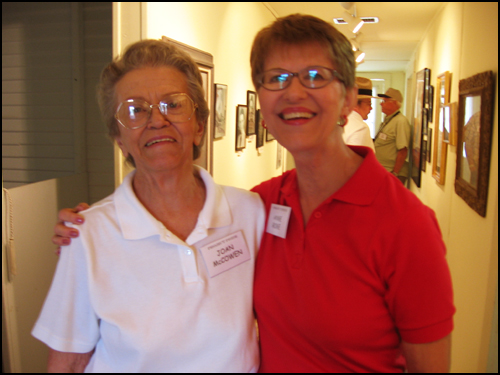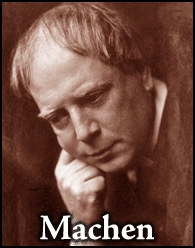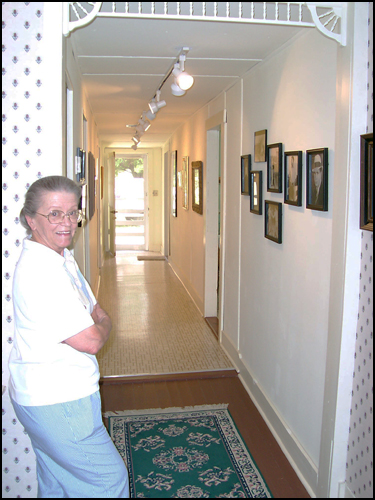
A Special Place
It’s true that REH wrote irresistibly thrilling stories. But, let’s face it, his life was about as exciting as a bus ride through Kansas. I don’t see why people hooked on the stimulation of Conan stories would travel great distances — spending $4000 or so, in the case of Flanagan — to examine the extremely private and extremely dull life of REH.
By all accounts, Robert E. Howard was an overly sheltered hot-house flower who spent his brief life in a room typing.
It’s weird.
— newspaperman Kent Biffle, writing in the Dallas Morning News, June 22, 1986 soon after attending the very first Howard Days
Howardists know all-too-well the peculiar combination of blithe ignorance and petty maliciousness frequently directed at Robert E. Howard by tonsured men of the journalistic cloth. In Biffle’s case, decades earlier he had been one of the young reporters on the scene in Dealey Plaza during that location’s most horrifying and chaotic afternoon — I suppose to him seismic events like that are what make one’s life truly exciting. In any case, if a small group of fans in 1986 caused him to scratch his head in consternation, it must be positively unsettling for him these days to ponder things like the Robert E. Howard House now a literary museum on the National Register of Historic Places, or REH’s life now immortalized by Hollywood in 1996’s The Whole Wide World. All of that translates into an awful lot of people obsessed with what Biffle once dismissed as an “extremely dull life.”
Anyone with even a modicum of interest in men and women of letters, though, can’t help but think that it’s Biffle’s disdain for literary spirit quests that comes across as truly weird. For the majority of us, touring the watering holes of favored authors is plenty exciting. At the time of Biffle’s article, Rusty Burke printed a rebuttal in his REHupa ‘zine, specifically a quote from A Literary Tour Guide to the United States: South and Southwest by Rita Stein, who in her book explains that, “Standing in a house where one’s favorite author lived, or seeing the desk at which he or she wrote, or visiting the haunts the writer once knew establishes a certain kinship with that writer.” Don Herron, the Godfather of Howard literary criticism (and, as it happens, the host of the longest-running literary walking tour in the United States), said much the same thing twenty-three years ago in his endlessly stimulating volume The Literary World of San Francisco & Its Environs:
The attraction of these writers’ homes and haunts, for many of us, is irresistible. In 1870 California’s own Joaquin Miller left for England to place a laurel wreath on Byron’s neglected tomb, to see sites associated with Burns and Scott, to track in London the steps of Browning, Bayard Taylor, and Tom Hood. The great Chicago bookman Vincent Starrett (who as a young reporter broke the story that the Literary Lion of 1800s San Francisco, Ambrose Bierce, had disappeared into Pancho Villa’s Mexico) recalls meeting the mystic writer Arthur Machen in London in 1924. As they strolled down a lane, Machen pointed to a plaque marking a home of Thomas Hood, Sr., and exclaimed “All over London!” (One of these London literary plaques on a dwelling place of W. B. Yeats compelled Sylvia Plath to take a five-year lease on the flat, where she committed suicide.) The LA writer Charles Bukowski mentions discovering John Fante’s novel Ask the Dust (1939): “Fante was my god and I knew that gods should be left alone, one didn’t bang at their door. Yet I liked to guess about where he lived on Angel’s Flight and I imagined it possible that he still lived there. Almost every day I walked by and I thought is that the window Carmilla crawled through? And, is that the hotel door? Is that the lobby? I never knew.”
Howard fans of all stripes have drifted into Cross Plains for decades, each compelled by the same siren song that motivated the likes of Miller, Starrett, Plath, and Bukowski. Each came searching for literary touchstones to connect with on an almost spiritual level. Award-winning science fiction writer Howard Waldrop is on record as having made the Quixotic trip as a youth way back in 1966:
June 11, 1966: A clear day that should come off hot. It is 6:30 in the morning, and my father tells me to use his car rather than my old ’51 Chevy for the trip. A trip that will take me a hundred and fifty miles there and a much longer way back, it seems…I was going out in search of part of America and Texas gone exactly thirty years ago to that day…I had only a vague idea of what to do or where to go…
Greenleaf Memorial Cemetery…I parked the car, got out and began to walk. Row on row of stones, marble, granite. Most are old, the marble is grayed or black, the raised letters are beginning to wear. The cemetery is huge, extending nearly a half-mile down the roadfront, at least that wide back from the road…two-thirds of the way back, near the center, I came on the marker, a huge one. HOWARD….
I stood for awhile, then went back to the car, turned it around and left. I was heading home. Robert Ervin Howard was behind me, towards the lowering sun. Back there was his short life, the immense amount of fiction he turned out, and the loneliness of his days….He wrote, out here in this open West Texas land, with nothing from his surroundings conducive to writing. His mind spanned ages, continents, the stars, the gods. And then he was gone.
In October 1965 famed fantasy poet Richard Tierney (Collected Poems: Nightmares and Visions, et al.) also made the journey, memorializing the event in his private journal (an excerpt of which was later published in The Cimmerian V1n2):
Oct. 21, Thurs.
We took off and drove up through the post-oak country to Brownwood, Texas, the former stomping grounds of Robert E. Howard…in the afternoon, we drove to Cross Plains, Howard’s home town. I’ve seldom seen a more dusty, nondescript little town in this country…We found [Howard’s house] — an old wooden house with peeling white paint and a weedy lawn, surrounded by a rickety picket fence. An old woman saw me taking pictures of the house and came out to talk. She lived there, now, and she had known Bob Howard in the old days.
On the way back to Brownwood I got some pictures of the Post Oak country around sunset. We got a motel room in Brownwood, bought some beer, and read aloud from certain parts of Howard’s story “The Black Stone.”
Oct. 22, Friday
Don & I located Robert E. Howard’s grave in the Greenleaf Cemetery near Brownwood. He is buried with both his parents under one headstone, which is probably fitting. Too bad I couldn’t have visited his grave on a dark, windy night bearing wine and strange incense for oblations; that would have been more appropriate.
Any number of writers, scholars, and fans from around the world have followed suit. The first meager (by today’s standards) Howard Days saw a paltry ten fans attend, and what gave Kent Biffle such pause was that two had traveled from Switzerland and one all the way from Australia, not knowing what to expect but determined to make what seemed like a once-in-a-lifetime trip to explore the authentic American Southwest milieu of their favorite writer.
Even before the advent of Howard Days, journeys to Cross Plains from halfway around the world were not unheard of. One of my favorite stories was detailed in The Cimmerian V4n1, when in an article titled “On the Road to Cross Plains” British Howard fan Chris Green told of his long-ago “CROSS PLAINS OR BUST” foray into Texas from England:
In the Summer of 1985, I took a hitchhiking and bus trip across the USA, coast-to-coast and back again on very little money, sleeping rough from time to time and skipping meals often, all for the sheer joy of making a journey I had dreamed of for years. Being young, I didn’t mind the hardships. I’d been a Howard fan since the mid-’70s, having come across him via the Marvel comics adaptations, and later a copy of the Sphere Conan the Conqueror, which I happened across in a secondhand bookshop. After reading that I was hooked for life, so naturally when the time came to take the plunge and make what I saw at the time as my Kerouac-esque epic journey, I had to make Texas a major part of my itinerary…Just seeing the town sign as we entered the outskirts gave me a tingle down my spine. We eventually located the Howard House, which looked kind of sad and shabby, with peeling paint and an overgrown yard, but nonetheless it was strangely thrilling to me.
Each one of these wanderers epitomize the literary natures and poetic souls that leave the Kent Biffles of the world confused and peevish. Each visited Howard’s house and whatever haunts they could locate, and even as they soaked in the atmosphere they harbored a flood of unanswered questions. Was that the shed where Howard lifted weights and practiced boxing? Was that the yard where Howard posed for sword-wielding pictures with his friends? Was that the exact spot in the dirt driveway where Howard’s car was on that fatal June morning in 1936? For the most part, these questing aficionados of the Howard legend were left with Bukowski’s lament on their lips: I never knew.
It didn’t help that many residents of the town of Cross Plains were for many decades openly hostile to Howard’s memory. For fifty years after his death there were no signs, no markers, no evidence of any kind that one of the most well-known fictional characters of the twentieth century had been willed into reality right there in Cross Plains. All throughout that time, the Howard House was privately owned and for the most part inaccessible to fans, most of Howard’s friends were either dead, sullenly behind closed doors, or had moved away long ago, and those dwindling few who still remembered Robert E. Howard were likely to be as scornful of the the town’s most famous son as Kent Biffle in full snob mode.
But a funny thing has happened in the twenty-two years since the entire notion of a Robert E. Howard Days was declared “weird” in the Dallas Morning News. Almost like magic, such lame attempts at ghettoization have given way to literary canonization by academic and popular presses, critical respect in newspapers, magazines, and books, and major Howard-themed events at GenCon, the World Fantasy Convention, and in Cross Plains itself. Since that first fledgling Howard Days, when a mere ten souls made the trek to Howard’s hometown and broke bread with an unimpressed Biffle, the yearly pilgrimage of his most dedicated acolytes has grown by leaps and bounds. In 2006, the year of Howard’s centenary, over three-hundred fans showed up to soak up Howard’s “extremely dull” life, coming from as far away as England and Germany.
These days, a hardcore Robert E. Howard reader can come to Cross Plains on a lark, as Hollywood actor Bruce Boxleitner (Tron, Babylon 5, Heroes) did a few years back, and be greeted by numerous signs around town, a full-fledged and lovingly restored Howard Home and Museum, and even an enormous Conan the Cimmerian painted on the side of the town Library:
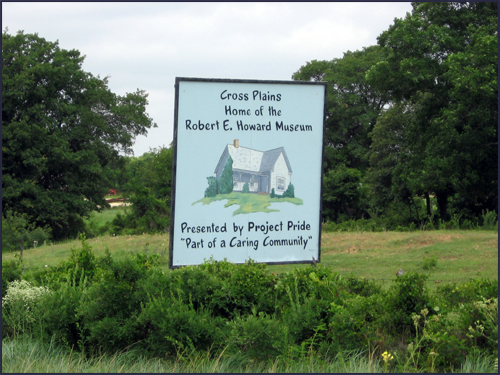
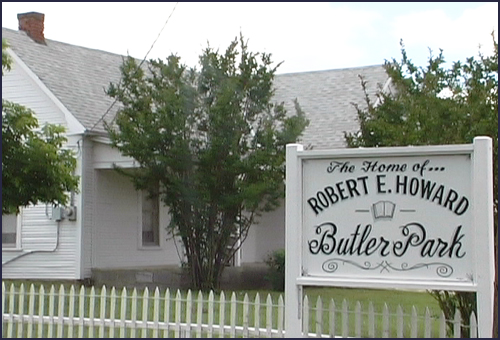
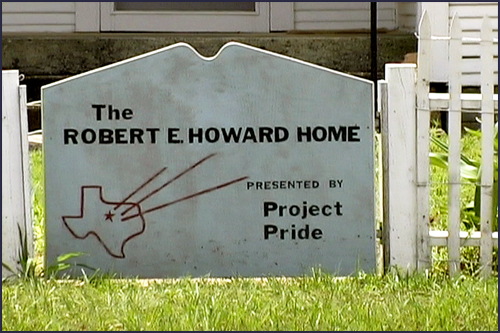
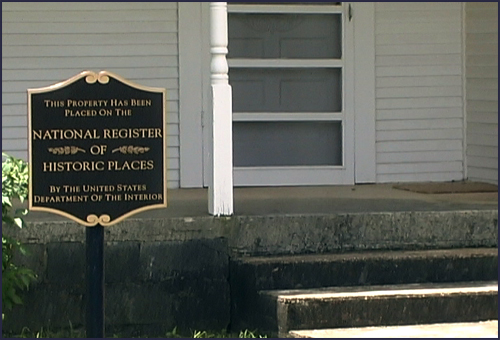
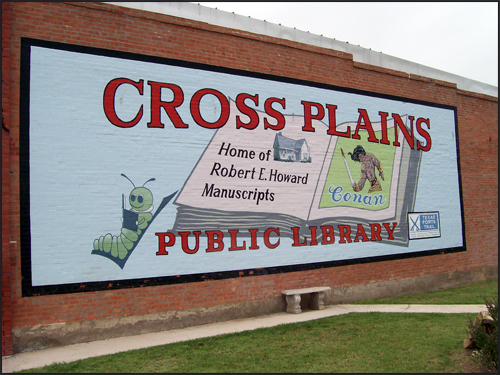
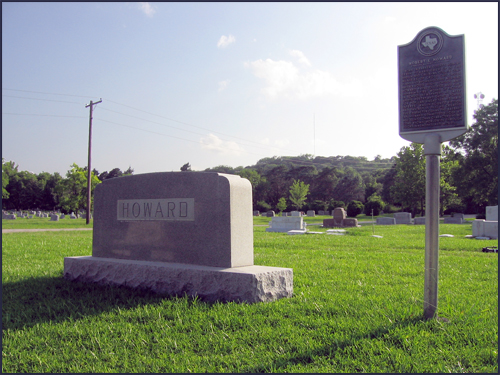
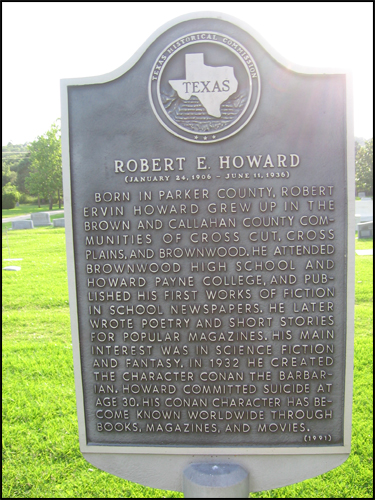
Many people, from all around the country and all walks of life, have contributed to this Renaissance. But crucially, it was some of the citizens in Cross Plains itself who managed much of the heavy lifting during the lean early years of struggle for very little gain. It is they who created a local booster organization called Project Pride, who in turn bought the Howard House, painstakingly restored it to its historical 1930s grandeur, put up the signs around town, established a Howard collection at the Library, and began the annual Howard Days festival that is now a favorite pilgrimage for fans across the country and around the world. The Howardian faithful have benefited immensely from the symbiotic relationship Project Pride has forged with the wider world of fandom. Few authors have the sort of hometown footprint and respect that Robert E. Howard is now accorded in Cross Plains, and for that every fan should be eternally grateful.
A Special Woman
The preceding is all just a long way of explaining the significant import of an event being held this afternoon. A celebration is scheduled from 2 p.m. to 3 p.m. at the Cross Plains library, to honor the woman who as much as anyone is responsible for the hugely successful twenty-year push to preserve and revere Howard’s memory in his hometown. Her name is Joan McCowen, and those of us who know Cross Plains well and visit often see her as nothing less than a living legend, a Herculean champion for literature who for decades has served as a beloved den mother to the ever-growing bands of rowdy scholars and fans who descend on Cross Plains each year.
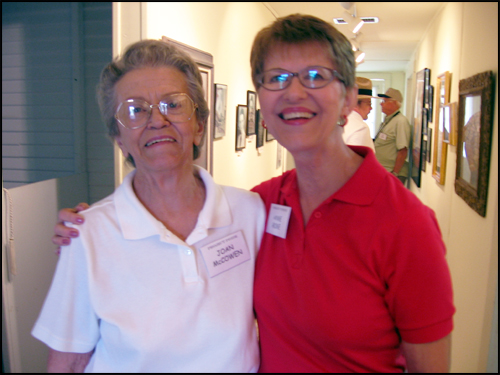
(above: Joan McCowen in 2007, posing in the hallway of the Howard House with fellow Project Pride docent Anne Rowe.)
In 1986, in the wake of the very first Howard Days gathering, Rusty Burke wrote a lengthy trip report on the event for the eighty-second mailing of the Robert E. Howard United Press Association. Marveling at the generous helpings of hospitality, friendship, and Howard history granted to him and his fellow attendees, he wrote at the time, “I’m not very good at putting emotions into words. It had far surpassed anything I thought at all reasonable to expect. I’d been led all these years to believe that the people of Cross Plains considered Howard a wacko and had little use for him. My first inkling that this might not be entirely true was my meeting with Joan McCowen at the Library in March.” That meeting had occurred when Rusty had passed through town (he lived in Houston at the time) and stopped into the library where Joan was working. As he wrote in 2002: “This was my first real connection with Cross Plains, and I am proud to say that now, sixteen years later, I have many good friends there, including Joan McCowen and her husband, Alton. Cross Plains has become a second home, perhaps a spiritual home, to me.”
Even before meeting Rusty, Joan had been using her position at the library to begin building a collection of Howard books there, starting with, in Rusty’s words, “mostly battered Ace Conan paperbacks.” She had already read Dark Valley Destiny by that time, and specifically recalls that it was Howard’s poetry that most captured her attention. So it was that this Cross Plains expatriate (she had been married in Illinois in 1951, and had later lived in San Diego with her husband until they both retired to Cross Plains in 1977) became an invaluable and influential champion for Robert E. Howard in the small, sleepy town. And when in 1986 Rusty Burke came calling, she was ready and willing to help him plan a special Howardian-themed gathering, exactly fifty years after the fictioneer’s death. It was the first of its kind, and its success would directly lead to Project Pride’s decision to buy and restore the Howard House and establish an annual Robert E. Howard Days.
Reading back through those old 1986 REHupa mailings, it’s clear that — for all the excitement their group vacation to Texas was generating — Rusty and the others were hedging their bets. They had no idea what to expect when they arrived in Cross Plains, and were simply hoping for something along the lines of what Waldrop and Tierney experienced: a bit of interaction with a few of the more amendable townsfolk, an opportunity to snap a picture or two, and the chance to make that subtle but profound connection with a favorite author and his home that so many of us yearn for.
But what Rusty and the others didn’t count on was the sheer thoughtfulness and ingenuity of Mrs. McCowen. For just a taste of the difference she has made for fans of Robert E. Howard, compare the somewhat forlorn and lonesome reminiscences of Mssrs. Waldrop, Tierney, and Green printed above with this description from Rusty of his kid-in-a-candy-store, fantasy come true, we’ve-arrived-in-Mecca blowout in 1986:
More surprises were in store for us when we entered the library. I would never have thought so many people would be there! I have no idea what the final count might have been, but there must have been forty or fifty at any one time — and this is not a huge library by any stretch of the imagination. A lot of them were really decked-out, making me feel very self-conscious (fortunately, the gang of “visiting scholars” was fairly presentable). We were quickly fitted with name tags, and mingled with the group. I got busy unloading the box of books we’d all chipped in to contribute to the library…I was a bit surprised to find that the donation was to be officially accepted not by Mrs. Loving or Mrs. McCowen, but by one of the town alderman….
Another treat was now in store for me…I got to meet and chat with Mrs. Alla Ray Morris and her mother, Alla Ray Kuykendall — their heirs of the Howard estate…She has done us the remarkable favor of bringing along a number of Bob Howard’s typescripts, which were displayed on a card table for us to inspect. These included the original mss. of “Lord of the Dead,” “The Black Moon,” “The Isle of Pirate’s Doom” and others. One feature of the manuscripts that immediately caught my eye was that Bob Howard didn’t believe in margins — he used every square inch of paper. Once again, that powerful feeling of spiritual kinship arose, as I reverently held these manuscripts — pages Bob Howard himself had typed, straight from his imagination, through his fingers and onto the paper. It was a transcendent experience, and from the bottom of my heart I thank Mrs. Morris for making these available to us….
One interesting experience was meeting a teenager from Rosenburg, which is south of Houston. He and his parents were traveling to New Mexico on vacation, and, a Conan fan, he had talked them into driving through Cross Plains along the way. He was quite surprised to see the “Robert E. Howard Day” sign in the library window….
No words I can ever commit to paper will begin to express the depth of my appreciation to these fine women and men, who did so much to make us welcome, and to make our trip so worthwhile. As I’ve said, they picked up some friends in faraway places, for life.
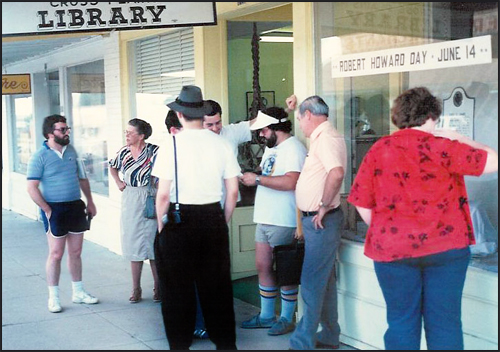
(above: Joan McCowen in 1986, holding court outside the Cross Plains Public Library with some of the small band of Howardists who had roared into town for the very first Robert E. Howard Day. REHupa editor Bill “Indy” Cavalier is standing at left — dig those 1980s bicycle short-shorts! And the Dean of Howard Studies, Glenn Lord, is in the peach shirt.)
Ponder all of that for a moment. From lonely fans standing out in the dusty road saying I never knew, to teenage fans passing through town on a whim and finding a raging Howard Day party at the town library, complete with original typescripts and the world’s foremost Howard scholars. That’s the difference Joan McCowen and her compatriots in Project Pride have made to our field, and since 1986 those nascent contributions have borne ever more fruit. Think of all the discoveries fans have made while visiting Cross Plains for Howard Days: the people they’ve interviewed, the sites they’ve explored, the treasures they’ve found (much of it dutifully recorded in The Cimmerian over the past half-decade). How different Howardian history would have been if Mrs. McCowen had airily blown off Rusty during his first contact, perhaps even feeding him some variation of Biffle’s “Howard was just a boring wacko, so why bother?” line!
But of course, someone with the grace, intelligence, and dedication of Joan McCowen would never think of doing such a thing. As the town librarian, as a standout and indispensable member of Project Pride, and as a fan of both great writing and of history, she has always been on the side of the angels.
At the end of his 1986 trip, Rusty experienced the kind of quiet exultation that so many of us have shared in later years:
Each of us had come to this moment, traveling hundreds, or thousands, of miles, because we do feel a spiritual kinship with Robert E. Howard. This was a family affair, then, and perhaps that’s why it eluded Kent Biffle. A reporter is always doomed to stand outside a family circle. He can report a family’s reunion, their sharing of memories and feelings of the departed, but he can never share in them, and so he can never truly understand. But we understand, and we joined together in giving thanks for the wonderful talent of Bob Howard, and the enrichment he brought to our lives. There, standing under a sunny Texas sky, I felt again that spiritual kinship — and now, not only with Bob Howard, but with these other people who had come so many miles to be here. A bond was strengthened here, one that had been formed in REHupa, but now was strengthened through shared experience. I will never forget these moments.
Nor will any of the rest of the thousands of fans who over the years have dropped everything, spent thousands of dollars, and trekked across untold leagues to come to Cross Plains and partake of the literary smorgasbord that Mrs. McCowen and Project Pride have kept open for Howard fans for over two decades now.
Joan is now getting up there in years, and is afflicted by a cancer that has unfortunately spread. Her beloved husband of over a half a century, Alton, died the summer before last, a terrible blow for all of us that follows the loss of so many other longstanding friends of Howard fandom in Cross Plains: Morris Cavanaugh, Joe Hanke, Clara Nell Spencer, Jack Scott, Billie Ruth Loving, Joe Howser, Zora Mae Bryant, Lois Garrett. None of us knows when or how we will leave this earth, and so it is particularly timely and appropriate that the town of Cross Plains is setting aside December 6, 2008 to honor one of their most loved citizens. Joan has friends not only throughout Cross Plains but throughout Howardom, and from what I hear many of the latter are planning to attend the celebration. For anyone interested and able, it’s being held in the town library from 2-3pm. If you are in Texas and within striking distance, do show up and pay your respects to a wonderful lady and her legacy of service, both to Cross Plains and to the memory of its most famous son.
I wish I could be there myself, alas, but in lieu of that I’ve tried my level best to bring us all there in spirit with this post. Rusty was right all of those years ago: we who have been to Cross Plains many times and who have befriended the members of Project Pride feel a spiritual connection to the town and to our surrogate family there, linked as we are by one common thread: the life and work of Robert E. Howard. And in large part we have Mrs. Joan McCowen, librarian extraordinaire, to thank for that. Whatever trials Joan may be facing, whatever the future holds for her, I hope she gains much comfort from knowing that she has changed untold lives for the better during her long and productive life. And the prodigious love and appreciation of each and every one of those people will accompany her from now until the end and beyond, wherever her ever luminous and undimmed spirit may roam.
May God bless and keep Joan McCowen, now and forever. You’re the best, girl.
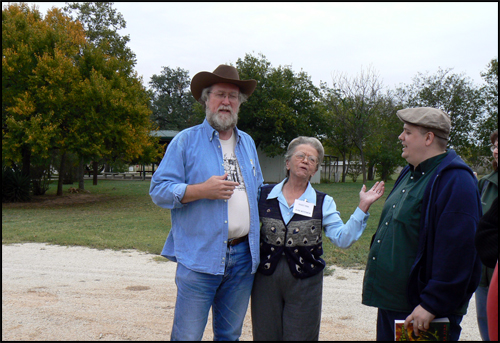
(above: Joan McCowen in 2006, flanked by well-known Howardists and Cross Plains regulars Rusty Burke and [redacted]. You can read Rusty’s tribute to Joan here.)

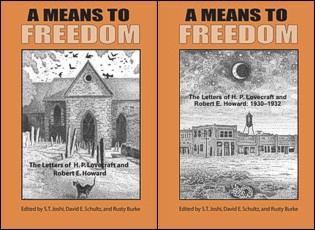
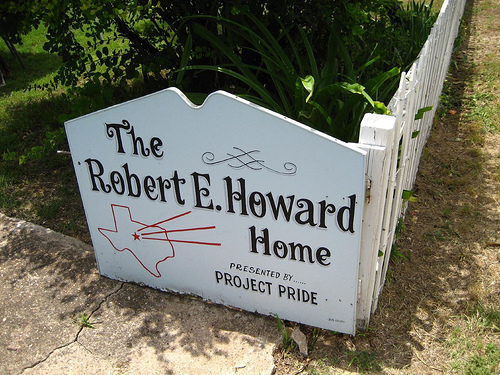
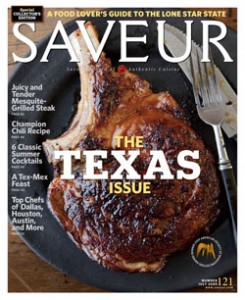 the corner), the editors and writers of Saveur (several of whom have Texan connections) decided to dedicate their most recent issue to the food-ways of the Lone Star State. To my knowledge, Saveur has never devoted an entire issue, cover to cover, to just one region, state or country (depending on whether you’re a Texan or not, the “state” or “country” designation may be problematic).
the corner), the editors and writers of Saveur (several of whom have Texan connections) decided to dedicate their most recent issue to the food-ways of the Lone Star State. To my knowledge, Saveur has never devoted an entire issue, cover to cover, to just one region, state or country (depending on whether you’re a Texan or not, the “state” or “country” designation may be problematic).











